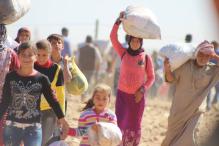Secretary-General Guterres has called for a “surge in diplomacy for peace,” pointing to the comparative value of preventive diplomacy in addressing the risks of violent conflict worldwide. This recognizes that politically-driven interventions are crucial for conflict prevention, but does not get at the tougher question of how and why preventive diplomacy works. At a time when Member States are looking to reduce spending and focus on what clearly works, the need is especially high for compelling, evidence-based assessments of the role of diplomacy in preventing conflict.
As part of a project entitled Capturing UN Preventive Diplomacy Success: How and Why Does It Work? UNU-CPR conducted a range of in-depth case studies examining how the UN contributed to preventing violent conflict at key crisis moments, including in Yemen (2011), Nigeria (2015), Malawi (2011), Sudan/Southern Sudan (2010-11), Lebanon (2012-17) and Guinea (2008-10). From these, UNU-CPR produced a Policy Paper outlining the logic of preventive diplomacy, the key success factors for UN interventions, and recommendations for policymakers and practitioners. These findings demonstrate the real impact the UN can have in complex conflict settings, and the many challenges in linking short-term interventions with longer-term sustainable peace.
Access 'Assessment Framework for UN Preventive Diplomacy: An Approach for UN Mediators and International Policymakers' here.


